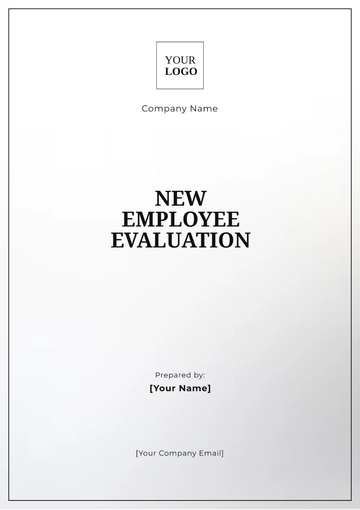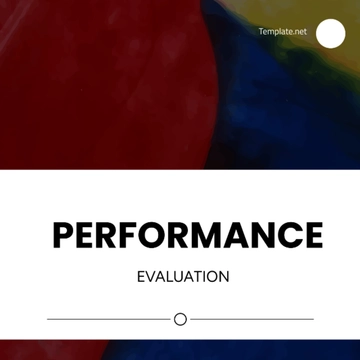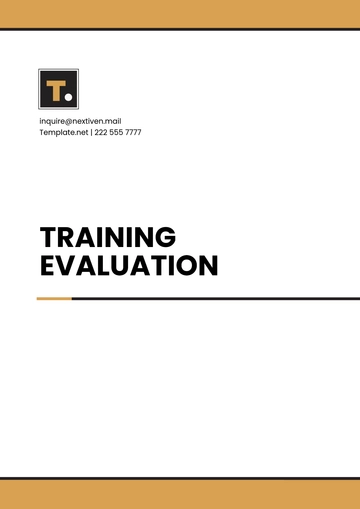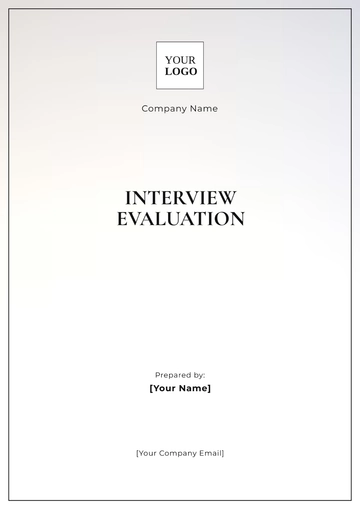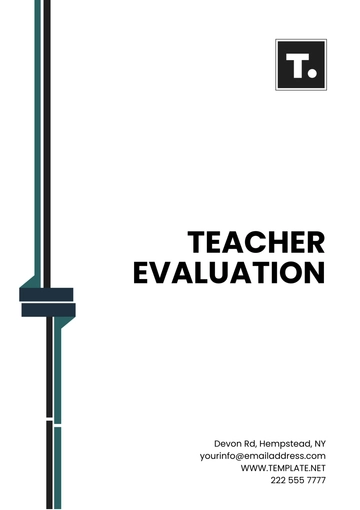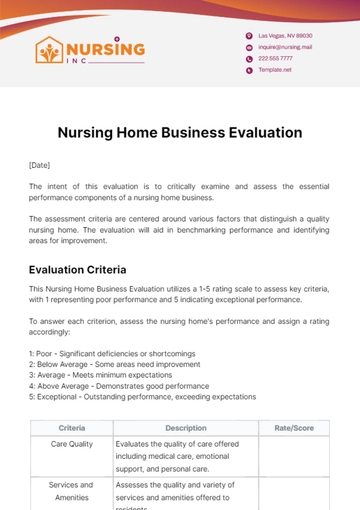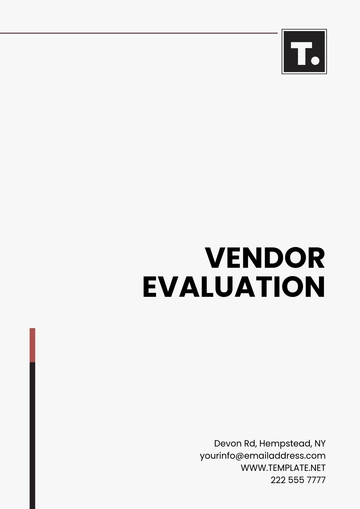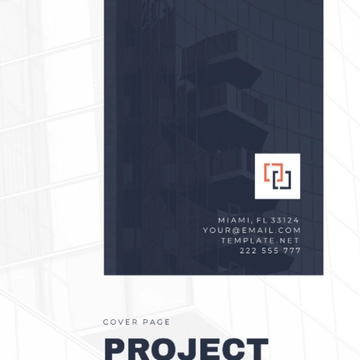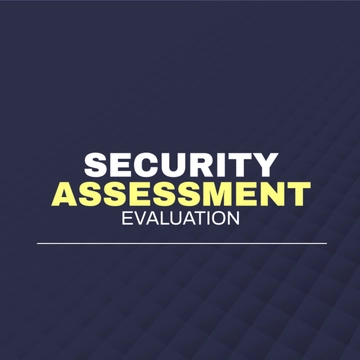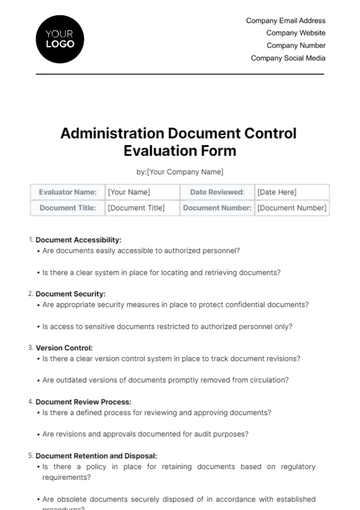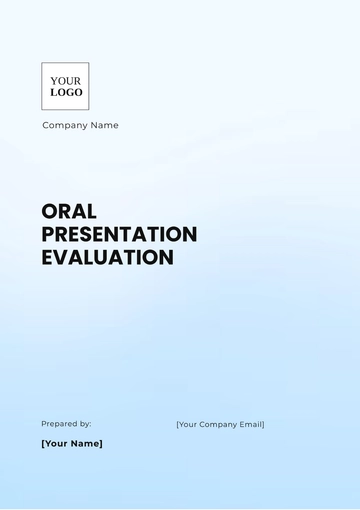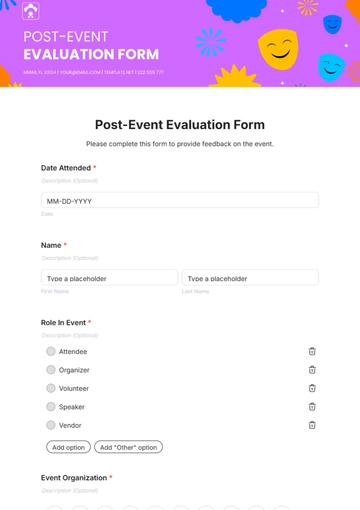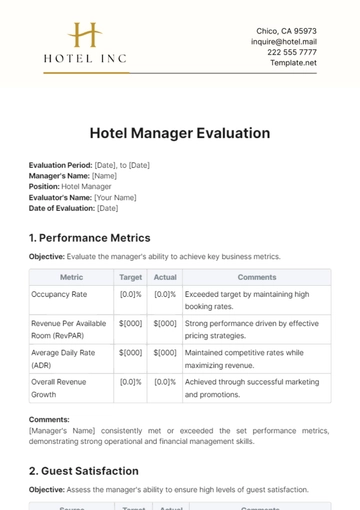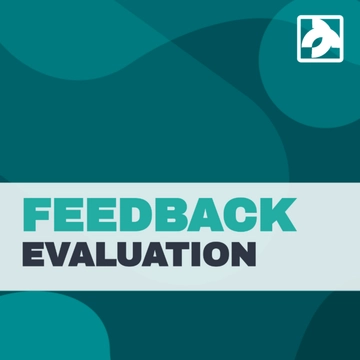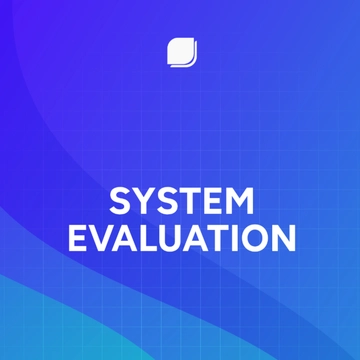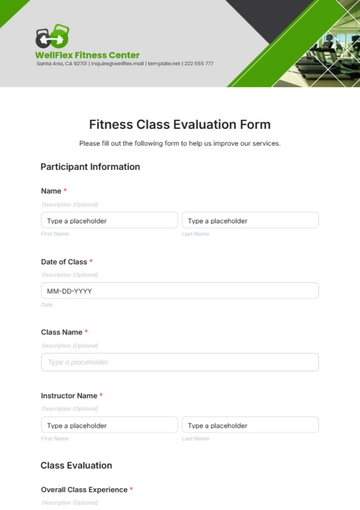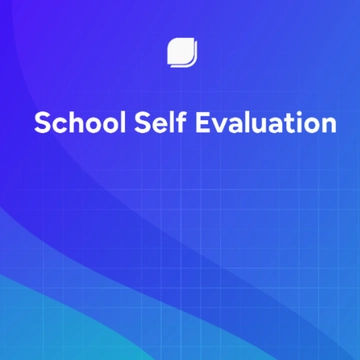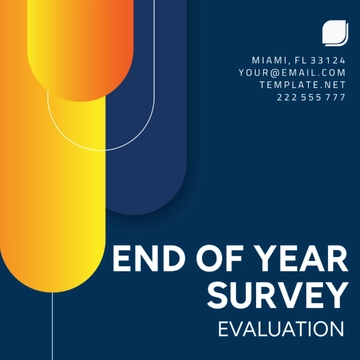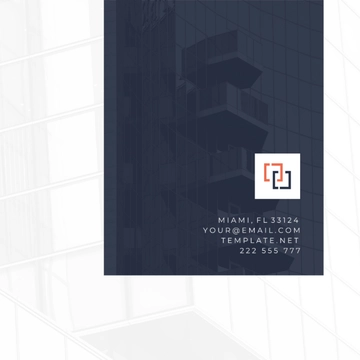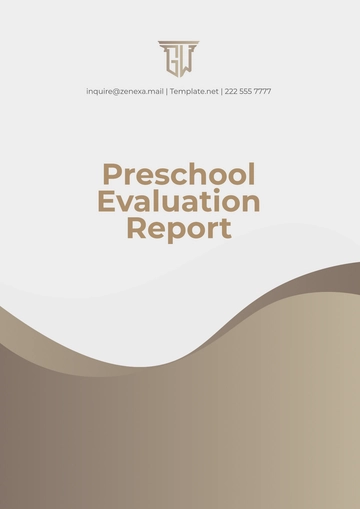Free Operations Quality Assurance Evaluation Checklist
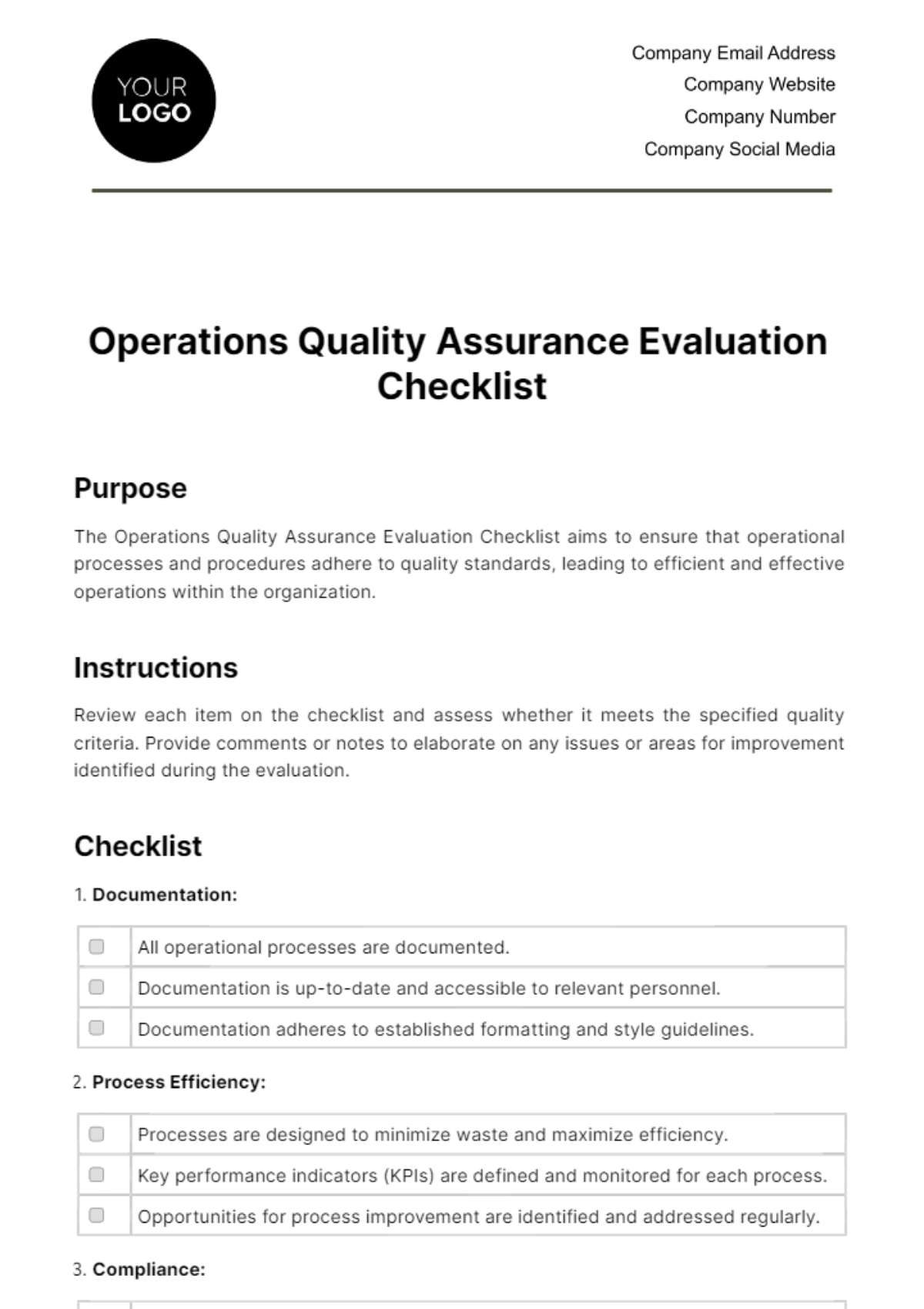
Purpose
The Operations Quality Assurance Evaluation Checklist aims to ensure that operational processes and procedures adhere to quality standards, leading to efficient and effective operations within the organization.
Instructions
Review each item on the checklist and assess whether it meets the specified quality criteria. Provide comments or notes to elaborate on any issues or areas for improvement identified during the evaluation.
Checklist
Documentation:
All operational processes are documented. | |
Documentation is up-to-date and accessible to relevant personnel. | |
Documentation adheres to established formatting and style guidelines. |
Process Efficiency:
Processes are designed to minimize waste and maximize efficiency. | |
Key performance indicators (KPIs) are defined and monitored for each process. | |
Opportunities for process improvement are identified and addressed regularly. |
Compliance:
Operational processes comply with relevant regulations and industry standards. | |
Compliance checks are conducted regularly to ensure adherence to regulatory requirements. | |
Corrective actions are implemented promptly to address any compliance issues. |
Training and Competence:
Personnel are adequately trained to perform their roles within the operations. | |
Training programs are regularly updated to reflect changes in processes or regulations. | |
Competence assessments are conducted to verify the proficiency of personnel. |
Quality Control:
Quality control measures are in place at each stage of the operation. | |
Inspections and audits are conducted to verify the quality of outputs. | |
Non-conformities are identified and addressed through appropriate corrective actions. |
Supplier Management:
Suppliers are evaluated based on their ability to meet quality requirements. | |
Contracts with suppliers include quality clauses and performance metrics. | |
Supplier performance is monitored and reviewed regularly. |
Continuous Improvement:
Processes for capturing and implementing improvement ideas are established. | |
Regular review meetings are held to discuss opportunities for improvement. | |
Lessons learned from past projects or operations are documented and shared. |
Evaluator: [Your Name]
Date: [Date of Evaluation]
- 100% Customizable, free editor
- Access 1 Million+ Templates, photo’s & graphics
- Download or share as a template
- Click and replace photos, graphics, text, backgrounds
- Resize, crop, AI write & more
- Access advanced editor
Explore the Operations Quality Assurance Evaluation Checklist Template from Template.net, crafted to enhance your quality assurance processes. This editable and customizable checklist empowers you to assess and improve quality standards seamlessly. With our Ai Editor Tool, editing becomes effortless, ensuring adaptability to your unique requirements. Elevate your quality assurance practices with this comprehensive and user-friendly template.
